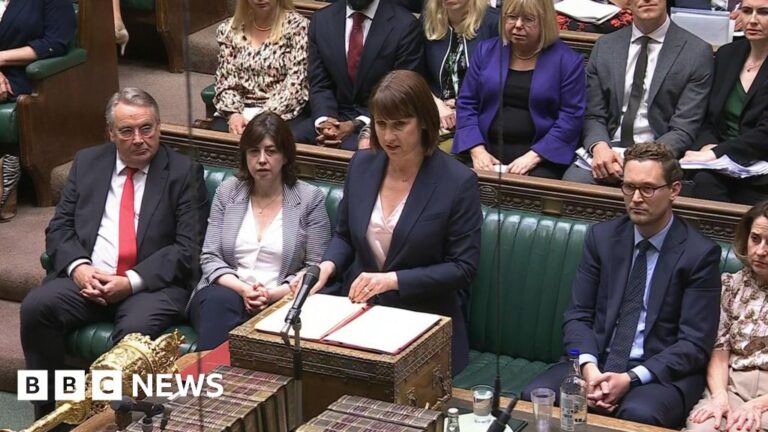This was Rachel Reeves’ first major role as Chancellor of the Exchequer.
Less than four weeks after Labour’s election victory, she delivered a statement from the podium entitled “Spending the Legacy”.
She had her eye on her predecessor, Jeremy Hunt, who now sits in opposition and was quietly indignant throughout.
This represents her first big set of choices as she tries to convince you, the voter, that her approach to running the economy is better than what has come before.
This was primarily a political moment, an attempt by the new government to hold the Conservatives accountable while offering up the first dregs of something difficult to announce.
The cuts take effect today, with tax increases expected in October’s budget.
The high-profile announcements are about public sector pay, which is expected to bring an end to frayed industrial relations, junior doctors’ strikes and public confusion.
However, it is quite expensive.
Plans to reform England’s social care system were postponed by the Conservatives and have now been scrapped by Labour.
Our collective failure to find a long-term solution to this huge problem for so many has now resurfaced once again.
The IFS said the decision not to proceed was “deeply disappointing” given the long-running failure to address the issue.
Also, restricting the Winter Fuel Allowance to only those in receipt of pension credit or other means-tested benefits was a real surprise, as this had never been publicly discussed before.
Government power is never stronger than in its first months in office, which is why cancellations and cuts are happening early.
And maybe this is just the beginning of something difficult.
When the budget is published on 30 October it looks likely that tax increases will be implemented for some people (probably on capital gains, inheritances and pensions).
Rachel Reeves and Sir Keir Starmer will be hoping that by the next general election in four or five years’ time, all this will be a distant memory.
Let’s take a look.

